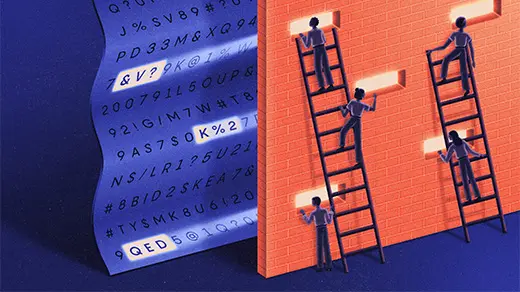What's up in
Proofs
Latest Articles
Mathematical Beauty, Truth and Proof in the Age of AI
Mathematicians have started to prepare for a profound shift in what it means to do math.
How a Problem About Pigeons Powers Complexity Theory
When pigeons outnumber pigeonholes, some birds must double up. This obvious statement — and its inverse — have deep connections to many areas of math and computer science.
The Jagged, Monstrous Function That Broke Calculus
In the late 19th century, Karl Weierstrass invented a fractal-like function that was decried as nothing less than a “deplorable evil.” In time, it would transform the foundations of mathematics.
Computer Scientists Combine Two ‘Beautiful’ Proof Methods
Three researchers have figured out how to craft a proof that spreads out information while keeping it perfectly secret.
With Fifth Busy Beaver, Researchers Approach Computation’s Limits
After decades of uncertainty, a motley team of programmers has proved precisely how complicated simple computer programs can get.
How Is Science Even Possible?
How are scientists able to crack fundamental questions about nature and life? How does math make the complex cosmos understandable? In this episode, the physicist Nigel Goldenfeld and co-host Steven Strogatz explore the deep foundations of the scientific process.
What Makes for ‘Good’ Mathematics?
Terence Tao, who has been called the “Mozart of Mathematics,” wrote an essay in 2007 about the common ingredients in “good” mathematical research. In this episode, the Fields Medalist joins Steven Strogatz to revisit the topic.
‘A-Team’ of Math Proves a Critical Link Between Addition and Sets
A team of four prominent mathematicians, including two Fields medalists, proved a conjecture described as a “holy grail of additive combinatorics.”
The Deep Link Equating Math Proofs and Computer Programs
Mathematical logic and the code of computer programs are, in an exact way, mirror images of each other.








